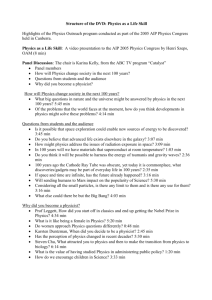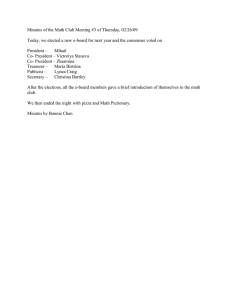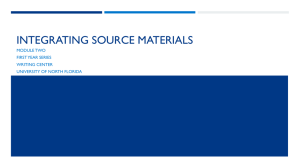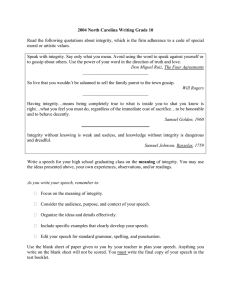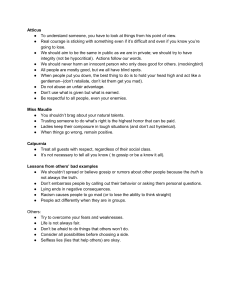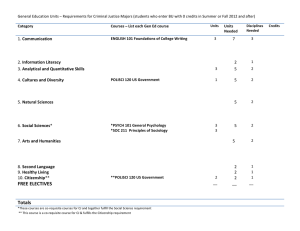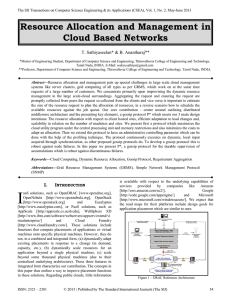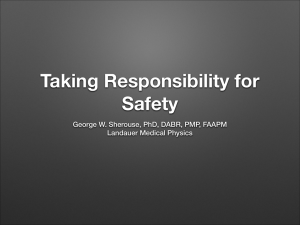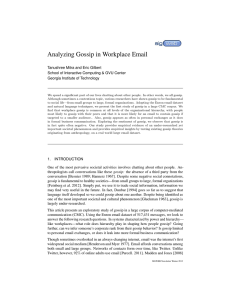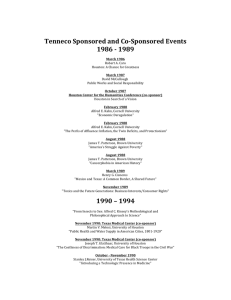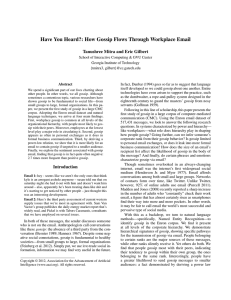Document 14206409
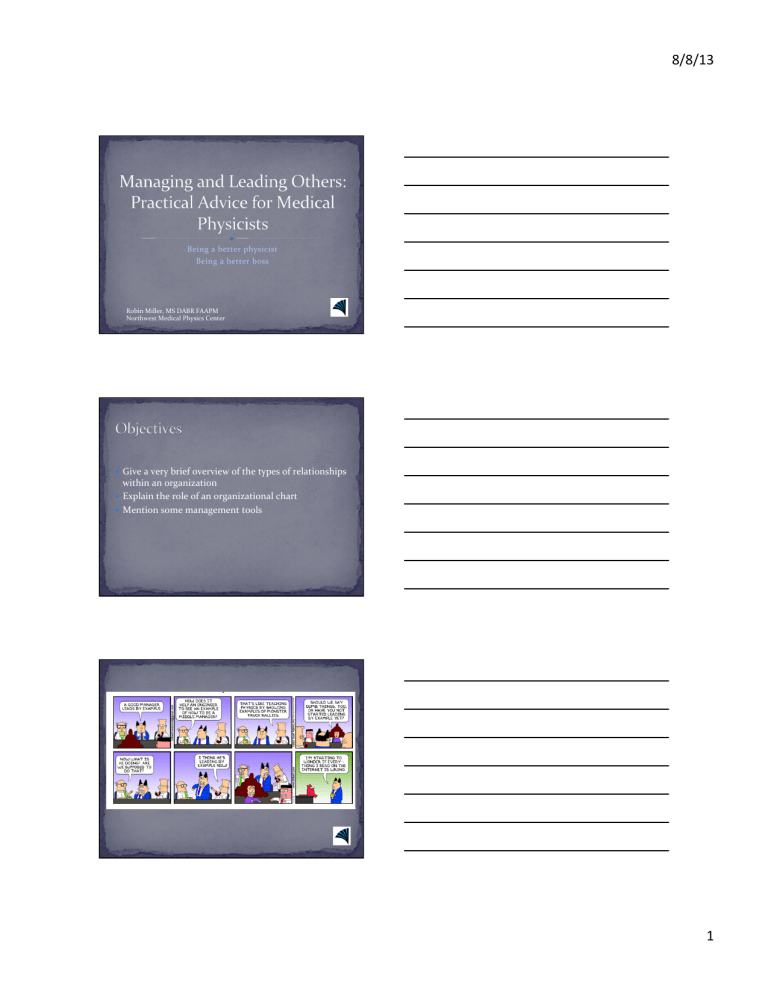
Being a better physicist
Being a better boss
Robin Miller, MS DABR FAAPM
Northwest Medical Physics Center
Give a very brief overview of the types of relationships within an organization
Explain the role of an organizational chart
Mention some management tools
8/8/13
1
8/8/13
ask the internet (of course)
Co-‐workers, direct reports and indirect reports
co-‐workers: someone who shares the same manager or can comprise the same department or division, work for the same employer or be a part of an interdisciplinary team direct report: someone directly under your supervision, who reports to you (often in the form of an employee evaluation, job performance, hiring and firing ) indirect report: this is more ambiguous, someone who works with you, sometimes for you, but is not directly subordinate, often reporting via a “dotted” line terminology can be dependent on the institution by Manu Cornet, 2011, copied from http://www.bonkersworld.net/organizational-‐charts/
2
accountability: the person held ultimately answerable for the completion of the task responsibility : the person achieving the task
The accountable signs off (approves) on the work of the responsible
the physicist signs off on the dosimetrist the doctor signs off on the “life cycle of treatment” http://en.wikipedia.org/wiki/Responsibility_assignment_matrix
American Idol
they think “ they can sing”
Super Nanny
behavior modification
Not The Game of Thrones
win or die teamwork & collaboration
Performance Evaluations
written evaluation
documentation of accomplishments
forward looking goals
can be used as a basis for further development
Competencies
demonstrate proficiency
the “new” buzzword
(to help meet accreditation
standards)
8/8/13
3
issues are often due to miscommunication and misperceptions
treat everyone equally well
listen
be slow to take offense
don’t share or tell your boss anything you would not tell a total stranger
Is it kind?
Is it true?
Is it necessary?
The role of Office Gossip in theWSJ, Jan 6, 2010 Jeffrey Zaslow
The best practice is to “ Mirandize ” yourself:
Simply assume that anything you say can and will come back to haunt you.
http://www.psychologytoday.com/blog/our-‐gender-‐ourselves/201304/navigating-‐the-‐perils-‐office-‐gossip
Stay calm
Try to understand the other person’s motivation
Focus on actionable items -‐ moving forward and a solution
Separate the person from the issue
8/8/13
4
• I have clearly communicated the order of priorities to my employees, including what I want them to treat as their
No. 1 priority.
• I have taught my employees what they need to know to do their job using verbal instruction.
• I have taught my employees what they need to know to do their job using written documents, such as checklists.
• I have communicated specific deadlines to my employees that give me enough time to check their work and have them redo the work if needed.
• I have given my employees positive reinforcement and praise for what they are doing.
Jennie Wong/The Charlotte Observer http://blog.nwjobs.com/careercenter/are_you_a_good_manager_take_the_quiz.html?prmid=4913
8/8/13
5
